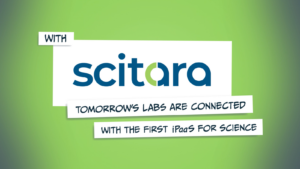In the digital age, laboratories are increasingly relying on electronic systems to collect, store, and analyze data. While this shift brings numerous benefits, it also introduces new challenges in maintaining data integrity. Ensuring the accuracy and reliability of lab data is crucial for scientific research, regulatory compliance, and decision-making. In this blog, we will explore the importance of lab data integrity and discuss strategies to maintain it in the digital age.
The Importance of Lab Data Integrity
Lab data integrity refers to the completeness, accuracy, and consistency of data throughout its lifecycle. It is essential for ensuring the validity and reliability of scientific findings. Here are some key reasons why lab data integrity is crucial:
- Scientific Validity: Accurate and reliable data is the foundation of scientific research. Without data integrity, research findings may be compromised, leading to incorrect conclusions and wasted resources.
- Regulatory Compliance: Many industries, such as pharmaceuticals and food safety, are subject to strict regulatory requirements. Maintaining data integrity is essential for meeting regulatory standards and demonstrating compliance.
- Reproducibility: Scientific research relies on the ability to reproduce experiments and validate results. Data integrity ensures that experiments can be replicated accurately, enhancing the credibility of research findings.
- Decision-making: Data-driven decision-making is prevalent in various fields, including healthcare and environmental monitoring. Inaccurate or unreliable data can lead to flawed decisions with potentially serious consequences.
Challenges in Maintaining Lab Data Integrity
The digital age has brought new challenges to maintaining lab data integrity. Here are some common challenges faced by laboratories:
- Data Security: With the increasing reliance on electronic systems, data security becomes a critical concern. Protecting data from unauthorized access, tampering, or loss is essential for maintaining data integrity.
- Data Quality Control: Ensuring the quality of data collected is crucial. Laboratories need robust processes and controls to detect and prevent errors, such as transcription mistakes or instrument malfunctions.
- Data Traceability: Traceability is essential for establishing the origin and history of data. Laboratories should implement systems that track data from its creation to analysis, including any modifications or annotations.
- Data Storage and Backup: Proper data storage and backup procedures are necessary to prevent data loss and ensure data availability for future reference or audits.
Strategies for Maintaining Lab Data Integrity
To maintain lab data integrity in the digital age, laboratories can implement the following strategies:
- Standard Operating Procedures (SOPs): Develop and enforce SOPs for data collection, analysis, and storage. SOPs should include guidelines for data entry, instrument calibration, and data backup.
- Data Validation and Verification: Implement automated validation checks to detect errors or inconsistencies in data. Regularly verify data against known standards or reference materials to ensure accuracy.
- Data Security Measures: Implement robust data security measures, including access controls, encryption, and regular security audits. Train staff on data security best practices to minimize the risk of data breaches.
- Data Backup and Recovery: Establish regular data backup procedures to prevent data loss due to hardware failures or other unforeseen events. Test data recovery processes periodically to ensure their effectiveness.
- Data Audit Trails: Implement systems that capture and retain audit trails of data modifications, including user actions and timestamps. Audit trails provide transparency and accountability in data management.
- Training and Education: Provide training to laboratory staff on data integrity principles, best practices, and regulatory requirements. Regularly update staff on emerging trends and technologies related to data integrity.
Conclusion
Maintaining lab data integrity is crucial for scientific research, regulatory compliance, and decision-making. In the digital age, laboratories face new challenges in ensuring data accuracy and reliability. By implementing strategies such as SOPs, data validation, security measures, and staff training, laboratories can maintain data integrity and uphold the highest standards of scientific integrity.
